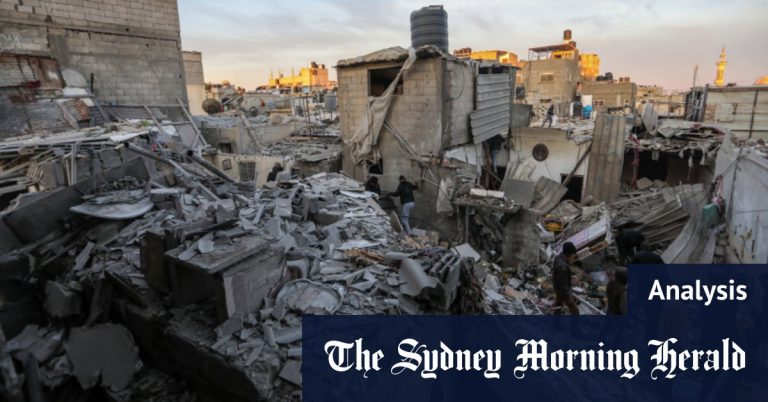Netanyahu says he directed the Israel Defense Forces to plan the evacuation of hundreds of thousands of people from Rafah, where more than a million Palestinians are believed to be taking shelter, before the ground invasion.
Explaining the importance of controlling Rafah, Israeli government spokesman Elon Levy said that the Israeli army had destroyed 18 out of 24 Hamas battalions since the start of the war.
Claiming that the last two Hamas battalions in Khan Yunis were “on their last legs,” Levy said the defeat of the four remaining battalions in Rafah was necessary to achieve Israel’s goal of defeating the terrorist group and removing it from power in Gaza. Rafah is located on the border between Gaza and Egypt, and Israel believes that controlling the city is crucial to stopping the flow of weapons and supplies to Hamas.

Israeli Prime Minister Benjamin Netanyahu announced that his country must achieve a “complete victory” over Hamas. credit: AP
“This war cannot end after the October 7 massacre, with Hamas declaring victory or even claiming a draw,” Levy said.
The divergent paths reflect the two, sometimes conflicting, goals that Israel sought to achieve in the war: the defeat of Hamas and the return of the hostages. A ceasefire would likely lead to the return of most of the surviving hostages, but could allow Hamas to regroup; Controlling Rafah would advance Israel's military objectives, but likely at the expense of the return of the hostages.
Israel rescued two hostages from Rafah on Monday in a successful mission, but Hamas said three others were killed during Israeli air strikes. Israel says about 100 are still being held by Hamas.
Biden called on Israel not to invade Rafah without a clear plan to protect civilian lives, and Prime Minister Anthony Albanese joined other world leaders in condemning the possibility of a ground incursion.
The United Nations warned of a “massacre” and a “terrifying” number of civilian casualties.
“This is a place where people have been displaced from their homes, often because their homes no longer exist or they have been asked to leave to be safe,” Albanese said in his harshest criticism of Israel since the beginning of the war. war.
download
Egypt warned that continued Israeli strikes on Rafah would create an “unlivable reality,” with the possibility of a mass displacement scenario occurring.
A spokesman for the Egyptian Ministry of Foreign Affairs said: “The Egyptian position on this matter was very clear and frank: We are against this policy, and we will not allow it.”
The possibility of a ground invasion of Rafah could ultimately be a tactic by Netanyahu to pressure Hamas as much as possible before a ceasefire agreement is reached. Or he may be serious about moving forward with trying to deal a decisive blow to Hamas.

